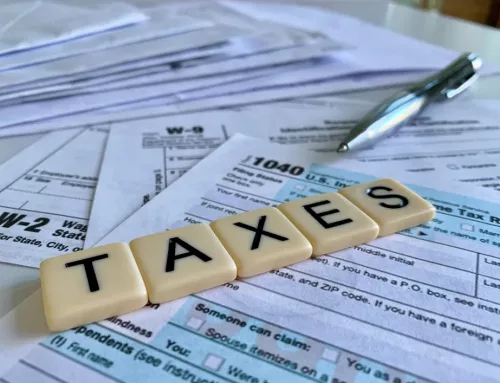As a bankruptcy filer, you want things to be simple and straightforward most of the time. However, you cannot deny that there are legal terminologies that you do not comprehend or do not fully grasp their essence. This lack of understanding of these terms prevents you from completing your bankruptcy filing completely, and you may be afraid or hesitant to fill out bankruptcy forms because you are intimidated by these terms, which is why having a Tacoma bankruptcy lawyer on your side will ensure that you have someone that could explain all of these terms and things that occur in a bankruptcy proceeding. At Jones Legacy Law, our bankruptcy attorneys are ready to help you get out of your financial rut.
When you file a chapter 7 or chapter 13 bankruptcy, you will be greeted with a large amount of bankruptcy paperwork. You are frequently asked to disclose basic financial information, such as your salary, personal properties or assets, the names of your creditors, how much you owe to your creditors, and so on.
You will be asked to list the types of debts you have in your bankruptcy papers. Is it either contingent, unliquidated, or disputed? You may be asking what the use of knowing what kind bankruptcy claims you have. If you want to learn more, read further below.
What are the basics of bankruptcy?
 When you face insurmountable debts or bills and the prospect of losing your house to foreclosure, you may be tempted to declare bankruptcy. Some people believe that filing for bankruptcy will assist them in resolving or repaying their debts and obtaining the new start they desire in terms of their financial health.
When you face insurmountable debts or bills and the prospect of losing your house to foreclosure, you may be tempted to declare bankruptcy. Some people believe that filing for bankruptcy will assist them in resolving or repaying their debts and obtaining the new start they desire in terms of their financial health.
In the simplest sense, bankruptcy is sort of a mechanism where you either liquidate your property to pay back your creditors or reorganize your debts and settle with your creditors through a repayment plan. The objective is to get your debts dismissed. Oftentimes, debtors who are insolvent see this as a way out of any financial difficulties.
In order to file for bankruptcy, you must first decide which chapter to file under. If you want to file for personal bankruptcy, Chapters 7 and 13 are the most commonly used chapters in which bankruptcy petitioners submit their bankruptcy petition. When it comes to filing for bankruptcy as a business, however, Chapter 11 is the way to go.
When it comes to Chapter 7, there is no need for a repayment plan, but you must liquidate or sell nonexempt assets that you possess to satisfy your debts or liabilities to your creditors. Chapter 13 bankruptcy discharges qualified debts over a three- or five-year repayment plan. Finally, Chapter 11 refers to a company reorganization, which implies the debtor restructures its business and then sets and pursues a plan to repay his/her creditors.
It is important to note that there are states that will need you to meet specific conditions before proceeding with your bankruptcy application. You should, for example, attend a credit counseling session. During this session, a consultant will lay out the many alternatives to bankruptcy that you might pursue. If you fail to complete this course, then you can not proceed with your bankruptcy petition..
Bankruptcy trustee
A trustee will be assigned to you when you file your bankruptcy case. Bankruptcy trustees are those people who are in charge of assessing and giving a recommendation to the court regarding your bankruptcy case. Take note that bankruptcy trustees have varying tasks and obligations depending on the kind of bankruptcy.
Please keep in mind that a bankruptcy trustee is not the same as a lawyer. Its principal purpose is to facilitate your bankruptcy case, which is why seeking help from a bankruptcy attorney guarantees you make an educated decision during your bankruptcy proceedings.
How to differentiate between a contingent, unliquidated, or disputed claim?
It is no surprise that you need to fill out numerous bankruptcy forms when filing for bankruptcy. Your financial situation is revealed on these forms. The bankruptcy court, trustee, and your creditors will know your income and debts, properties you own or recently transferred, your household’s monthly budget, among other things.
Listing your debts, otherwise known as bankruptcy claims, is also part of the process.
Part of the process is listing your creditor’s name and the amount you owe. You further classify these as: contingent, unliquidated, or disputed.
Contingent Claim
This kind of claim is dependent on a certain event. There are occasions when claims or debts are triggered by or resulted from a certain incident or situation. For example, you may be a consignee on a loan obtained by a friend. Now that your friend has defaulted or is insolvent, you must pay the debt or liabilities that your friend has over his/her creditor as a consignee. Hence, your friend’s inability to pay his or her obligation prompted the so-called contingent claim.
Unliquidated Claim
There are occasions when you are aware that you have outstanding financial liabilities to pay but do not know the exact amount of the debt. This circumstance qualifies as an unliquidated claim. When we talk about this type of claim, the amount of debt cannot yet be established since a particular factor must be completed or finished first.
Consider someone who has filed a tort case against you in court. The damages that you will have to pay to the aggrieved party can not yet be determined because the court or the jury has not yet finished the trial due to underlying factors such as when a person is still undergoing medical treatment. This implies that you will only know how much you owe once something has concluded.
Disputed Claim
The word itself would suggest that this kind of claim refers to debts on which a debtor and creditor cannot agree, or the debt is not acknowledged by the debtor. This is essentially a claim in which you disagree with the debt itself or its total amount.
Assume, for example, that your creditor claimed that the amount you owe him/her is $9 000, but you do not think it is that amount. If this event occurs, either of you will be required to establish the proper amount of debt to the court. This type of situation would necessitate the assistance of a bankruptcy lawyer, who would advise you on what documentation you should have. Having an attorney on your side from the start would also be advantageous since they will assist in these sorts of problems.
Even if you don’t agree on the debt or its size, it is critical that you disclose it because if the bankruptcy proceedings are completed, and it is determined that the disputed claim is valid, then it may be added to the list of dischargeable debts. Filers of bankruptcy often tend to neglect or do not know the significance since it may appear laborious on their side.
Start your debt-relief journey now!
You do not want to go through the trouble of facing debts or bills stacking up in front of you. However, there are some events beyond your control, such as losing your work. When you lose your job, you lose your source of income, which leads to your inability to pay your debts or liabilities. You should not feel alone as you go through this challenging time in your life.
We at Jones Legacy Law understand the mission – to guide you to your debt-free fresh start. We have bankruptcy lawyers that have handled a variety of bankruptcy cases and they are adept in handling your bankruptcy case. We are well prepared to assist you in regaining your financial health.



